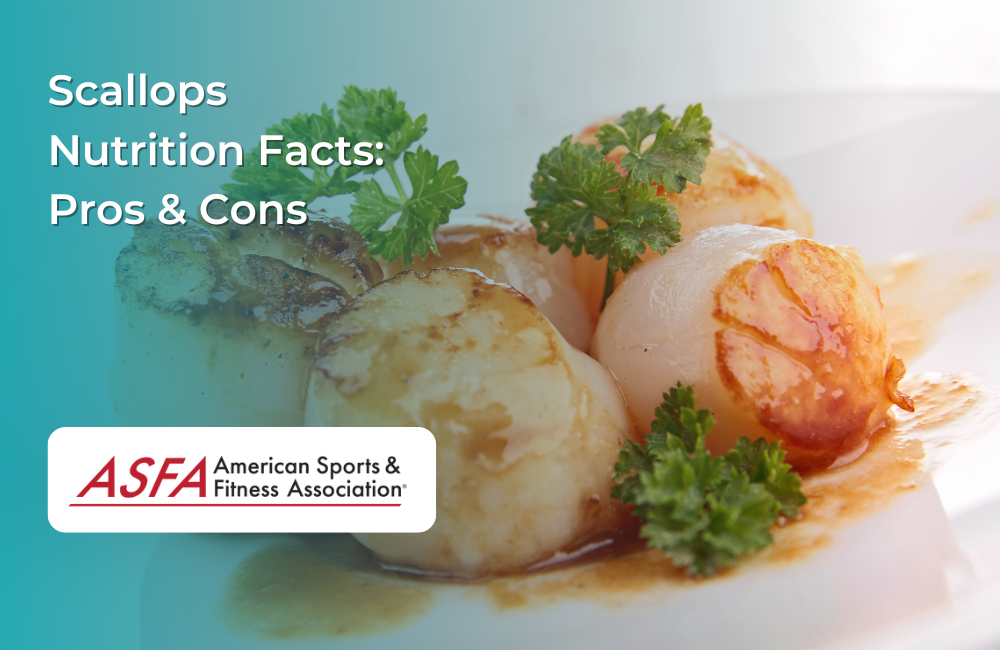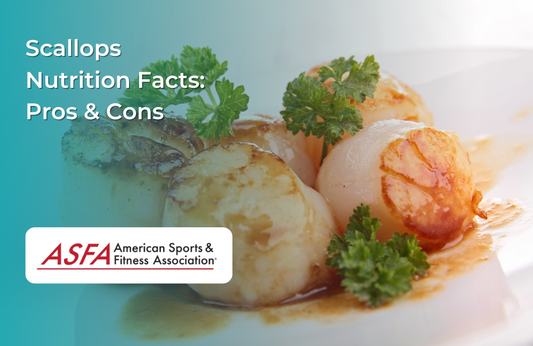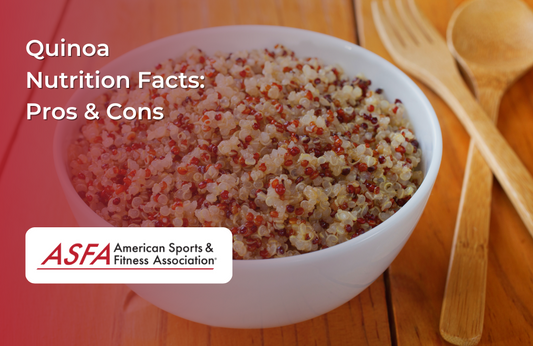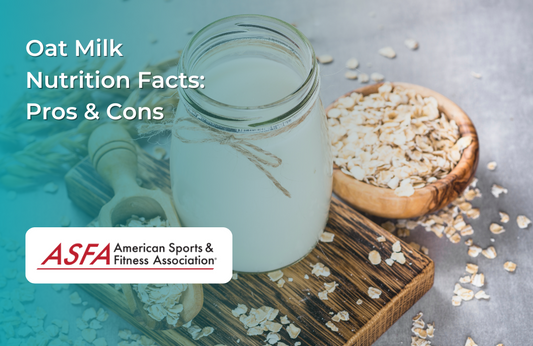Scallops are a popular seafood choice known for their delicate texture, mild flavor, and impressive nutritional profile. They are a lean source of protein and contain essential vitamins and minerals that support overall health. While they offer several health benefits, there are also some considerations related to sourcing, preparation, and dietary restrictions.
Scallops Nutrition Facts Pros Cons: A Detailed Analysis Per 3.5 Ounces, Cooked
Here are the scallops nutrition facts per 3.5 ounces, cooked:
-
Calories: 95
-
Protein: 20g
-
Carbohydrates: 2g
-
Fat: 1g
-
Omega-3 Fatty Acids: 0.2g
-
Cholesterol: 40mg
-
Sodium: 567mg
-
Vitamin B12: 1.2mcg
-
Magnesium: 43mg
-
Selenium: 24mcg
What Are Scallops?
Scallops are a type of marine bivalve mollusk belonging to the family Pectinidae. Recognizable by their fan-shaped shells, which are typically white or cream-colored, scallops boast a delicate, sweet flesh that makes them a favorite among seafood lovers. Found in oceans around the world, different species of scallops inhabit various regions, contributing to their diverse availability. Their tender texture and rich flavor make them a popular choice in many culinary traditions.
Health Benefits of Scallops
High in Protein and Low in Fat
-
Provides a lean source of high-quality protein for muscle maintenance and repair
-
Naturally low in fat, making it a good option for those looking to reduce calorie intake
-
Adequate protein intake from scallops supports healthy bones by maintaining bone mineral density and reducing fracture risks
Rich in Essential Vitamins and Minerals
-
High in vitamin B12, which supports nerve function and red blood cell production
-
Contains selenium, an antioxidant that helps protect cells from damage
-
Omega-3 fatty acids in scallops support brain health by improving nervous system function and cognitive abilities
Supports Heart Health
-
Provides omega-3 fatty acids that help reduce inflammation and support cardiovascular function
-
Low in saturated fat, making it a heart-healthy protein choice
-
Rich in omega-3 fatty acids and low in saturated fat, scallops can reduce the risk of cardiovascular disease by promoting heart health and improving blood flow
Vision Health Benefits
Eating scallops can be beneficial for your vision, thanks to their rich content of omega-3 fatty acids, particularly EPA and DHA. These essential fatty acids help reduce inflammation in the eyes and protect against age-related macular degeneration. Additionally, scallops are a good source of vitamin A, which is crucial for the health of the retina and cornea. Regularly incorporating scallops into your diet may help reduce the risk of vision problems and promote overall eye health.
Immune System Benefits
Scallops are packed with nutrients that support a robust immune system, including vitamin B12, zinc, and selenium. Vitamin B12 is essential for the production of white blood cells, which play a critical role in fighting off infections. Zinc and selenium, both known for their antioxidant properties, help protect cells from damage and bolster overall health. Including scallops in your diet can provide these vital nutrients, helping to keep your immune system strong and resilient.
Low in Calories and Carbs
-
Suitable for low-carb, keto, and weight management diets
-
Offers a nutrient-dense option without unnecessary added sugars or fats
Cons of Scallops
Naturally High in Sodium
-
Contains a moderate amount of sodium, which may be a concern for individuals managing blood pressure
-
Choosing fresh over processed or pre-seasoned cooked scallops helps reduce sodium intake
Potential for Shellfish Allergies
-
Shellfish allergies are common and can cause serious reactions in some individuals
-
Those with known seafood allergies should avoid scallops
Sourcing and Environmental Concerns
-
Some scallops are farm-raised, which may have different nutritional content and environmental impact compared to wild-caught varieties
-
Sustainable seafood certifications help ensure responsible sourcing
-
Sourcing bay scallops responsibly helps minimize health risks associated with contaminants and supports sustainable seafood practices
Can Contain Heavy Metals or Contaminants
-
Like other seafood, scallops may contain trace amounts of mercury or other environmental pollutants
-
Eating scallops in moderation as part of a varied diet minimizes potential risks
-
Selecting fresh, properly stored sea scallops can help minimize the risk of contaminants and ensure the best nutritional benefits
Storage and Food Safety
Proper storage is key to ensuring the safety and quality of scallops. Fresh scallops should be kept in the refrigerator at a temperature of 40°F (4°C) or below, stored in a covered container, and used within a day or two of purchase. For longer storage, frozen scallops can be kept in the freezer for up to three months. When it comes to cooking scallops, it’s crucial to cook them to an internal temperature of at least 145°F (63°C) to prevent foodborne illness. By following these guidelines, you can enjoy fresh scallops safely and deliciously.
Cooking Methods
Scallops are versatile and can be prepared using various cooking methods, including steaming, boiling, grilling, and pan-frying. Steaming is an excellent way to cook scallops without adding extra fat, preserving their delicate flavor and texture. Boiling is another low-fat method that helps retain the nutrients in scallops. Grilling and pan-frying can add a delightful flavor, but be careful not to overcook them, as they can become tough and rubbery.
Here are some delicious scallop recipes to try:
-
Garlic-Lemon Scallops: Marinate scallops in a mixture of garlic, lemon juice, and olive oil, then grill or pan-fry until cooked through.
-
Steamed Scallops with Herbs: Steam scallops with fresh herbs like parsley, dill, and chives, and serve with a squeeze of lemon juice.
-
Scallops with Pesto Sauce: Pan-fry scallops with pesto sauce and serve with pasta or rice.
Remember to always handle scallops safely and cook them to the recommended internal temperature to prevent foodborne illness. Enjoy your delicious and healthy scallop dishes!
Conclusion
Scallops are a lean, high-protein seafood option rich in essential nutrients like vitamin B12, selenium, and omega-3 fatty acids. They are low in calories and fat, making them a great choice for heart health, weight management, and muscle support. However, their sodium content, potential allergens, and sourcing concerns should be considered. Choosing fresh, sustainably sourced scallops ensures the best nutritional benefits while minimizing environmental impact.
FAQs
Are scallops a healthy seafood choice?
Yes, they are high in protein, low in fat, and rich in essential vitamins and minerals, making them a nutritious seafood option.
Can scallops be eaten on a low-carb diet?
Yes, scallops are naturally low in carbohydrates and fit well into low-carb and keto diets.
Do scallops contain mercury?
Scallops have relatively low mercury levels compared to larger fish, making them a safer seafood option.
How can I reduce sodium in scallops for better blood pressure?
Opting for fresh or wild-caught scallops rather than processed or pre-seasoned varieties helps lower sodium intake.
Are scallops good for muscle building?
Yes, their high protein content makes them an excellent choice for muscle growth and recovery.





